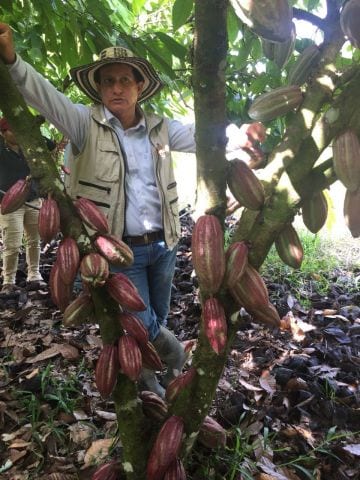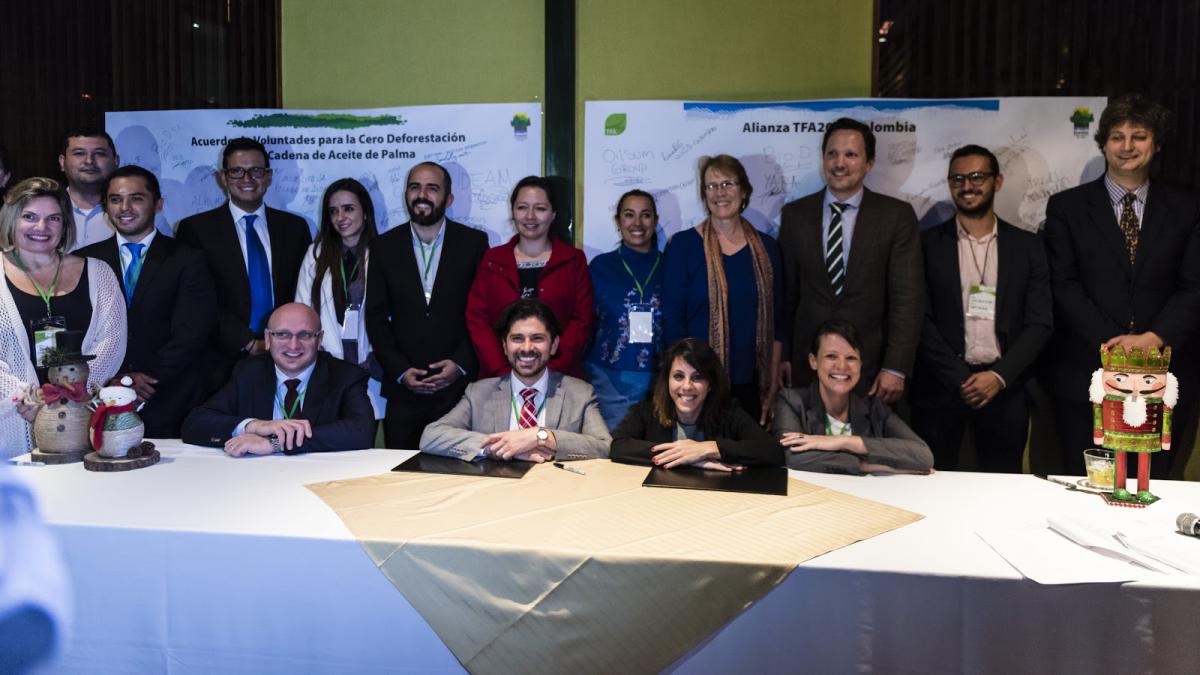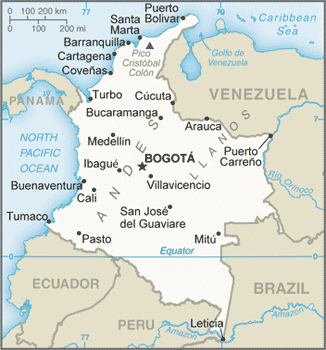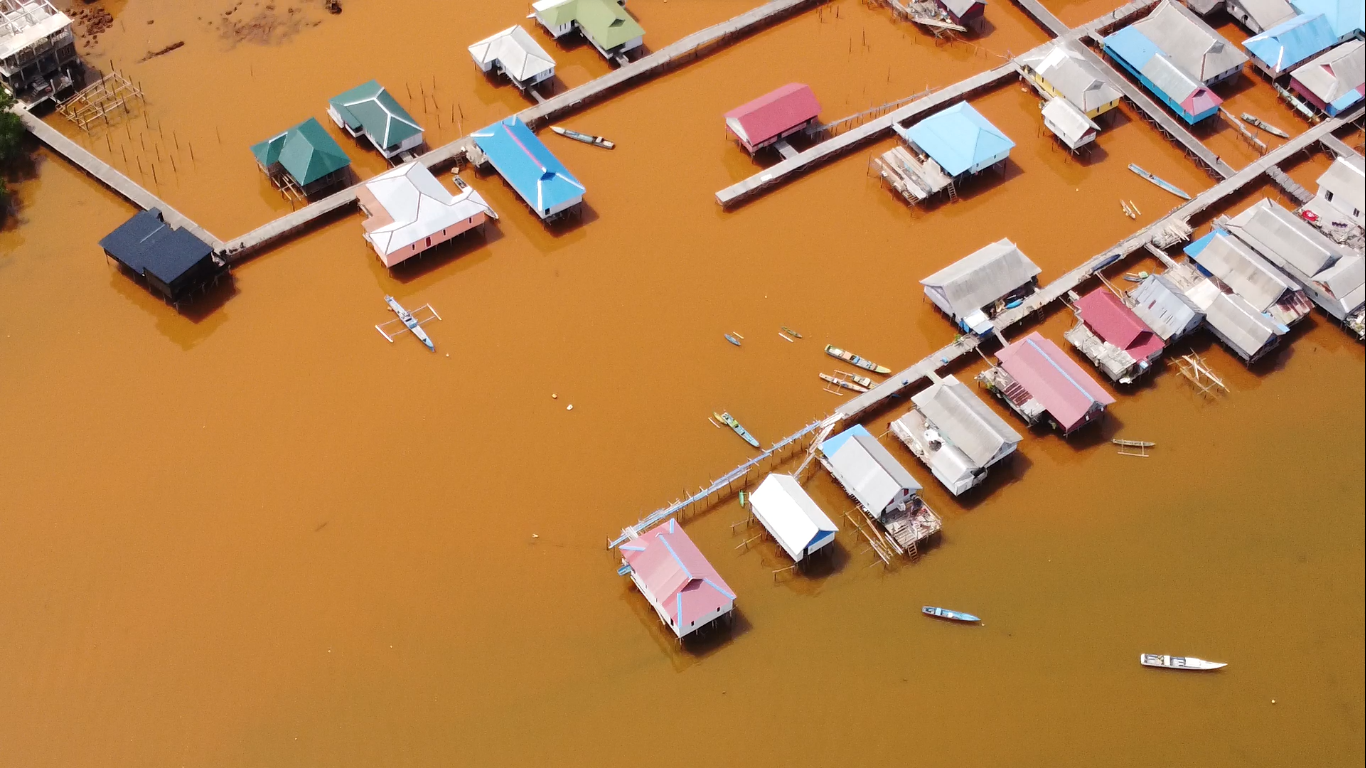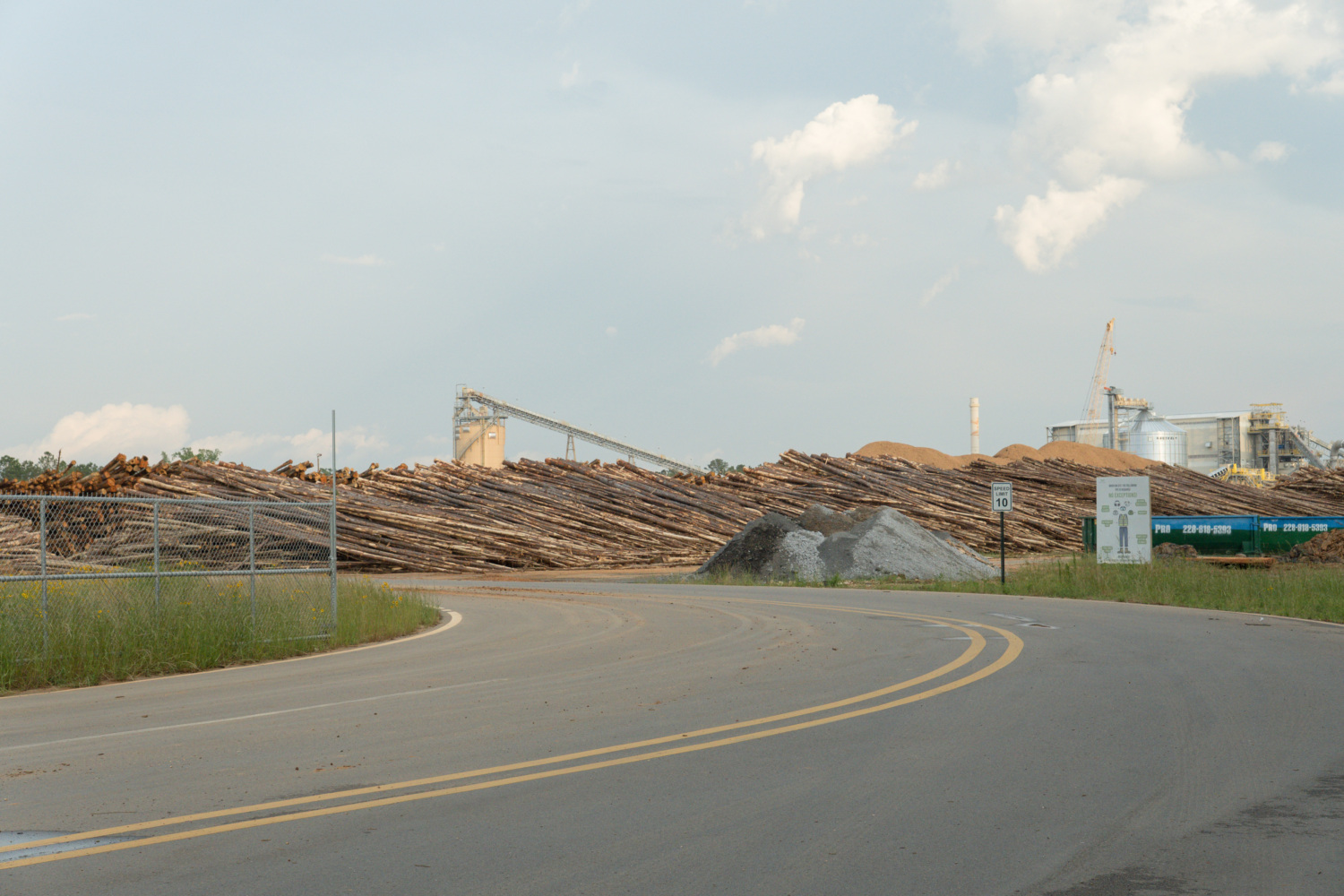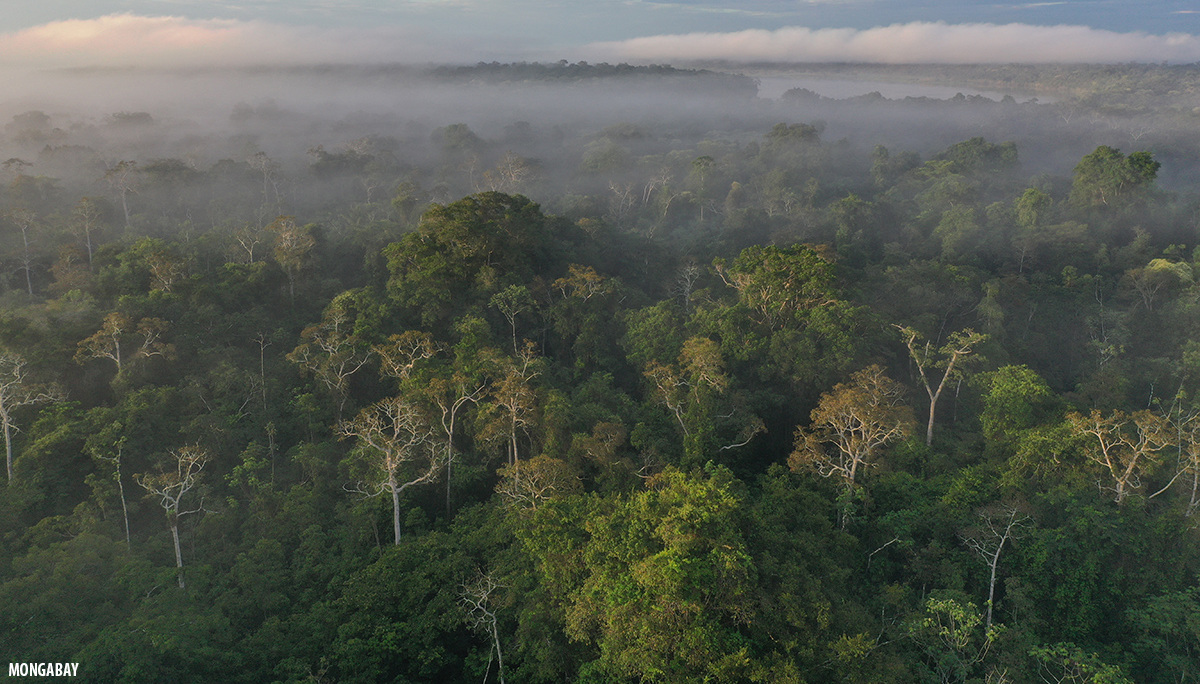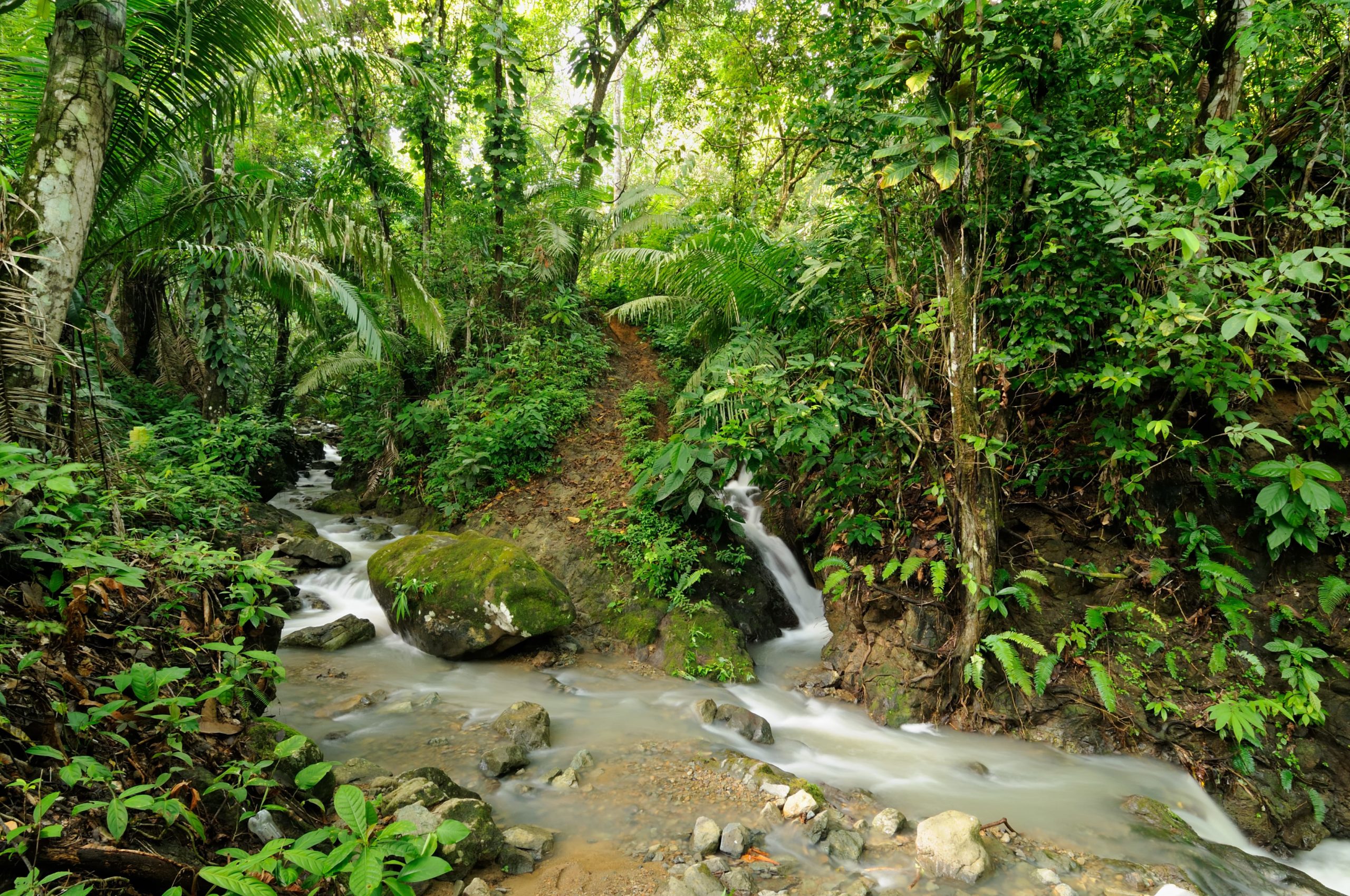
Colombia Becomes First Country in Latin America to Commit to Deforestation-Free Chocolate
Mighty Earth applauds Colombia’s decision, announced today, to join the Cocoa and Forests Initiative, a global effort to ensure deforestation-free cocoa. Deforestation for cocoa is a global problem, and the solution must be global as well. Mighty Earth has documented extensive forest destruction for cocoa far beyond West Africa, from Indonesia and Cameroon to Peru and Ecuador. Every cocoa-producing country – from Brazil to Belize and beyond – should be stepping up to the plate and creating national deforestation-free cocoa plans, just as Colombia did today. Colombia has established a new, unquestioned leadership across Latin America in the area of clean, ‘green’, forest-friendly chocolate, thanks to its framework for action announced today.
Now we are looking to the rest of Latin American cocoa-producing countries to match or surpass Colombia, with their own plans to end deforestation for cocoa. What’s more, we hope that in the coming months, Colombia can integrate a focus on agroforestry as well as zero-deforestation cocoa. After all, ending deforestation is just like stopping the car before it drives off the cliff, but agroforestry is like putting the car in reverse. That’s how cocoa can become a truly forest-friendly commodity.
The full press release from World Resources Institute is below:
Colombia Becomes First Country in Latin America to Commit to Deforestation-Free Chocolate
The Colombian Government – alongside Colombia’s leading cocoa company, Casa Luker, and the National Cocoa Federation – pledges to produce deforestation-free and ‘peace-friendly’ cocoa
BOGOTÁ (July 17, 2018) — The Government of Colombia – along with its largest cocoa company, Casa Luker, and the members of the National Cocoa Federation – has committed to eliminate deforestation from the country’s cocoa supply chain by 2020. The commitment will be supported by the World Resources Institute (WRI) and the Sustainable Trade Initiative (IDH).
Colombia joined the Cocoa and Forests Initiative, a global effort to ensure deforestation-free cocoa. The Governments of Ghana and Côte d’Ivoire, responsible for 60 percent of the world’s cocoa, were the first two governments to sign and implement the agreement in 2017. Today, Colombia becomes the first country from Latin America to sign up to the principles of the Initiative, which will be called the ‘ Cocoa, Forests and Peace Initiative‘, in honour of cocoa’s role in advancing the historic peace process by providing rural employment to farmers and communities previously involved in the conflict.
The Colombian cocoa sector is growing rapidly. The crop has been identified as a priority for Colombian agricultural growth, both for domestic consumption and international export. The bulk of Colombia’s cocoa production has the characteristics of ‘Fino de Aroma’ cocoa, a classification much-prized in the international market.
“Colombia is proud of the quality of the cocoa it produces, as well as its contribution to economic growth, rural employment, avoided deforestation and restoration of degraded land,” said Juan Guillermo Zuluaga , Colombia’s Minister of Agriculture and Rural Development. “In a market characterized by a growing interest in zero-deforestation cocoa, with a positive story to tell about forests and peace, we hope Colombia’s signing up to the Cocoa and Forests Initiative will encourage greater interest and investment in the Colombian cocoa supply chain.”
Colombia’s rates of deforestation have increased rapidly since the conclusion of the peace process, as remote areas of the countryside – once off-limits – have seen rapid agricultural and livestock expansion, land speculation and infrastructure development. Recent data from Global Forest Watch and the National Meteorological Institute (IDEAM) show Colombia saw a 46 percent increase in tree cover loss in 2017, which was double the average loss from 2001-’15, but the country is taking significant steps to stop this trend. The government cancelled a major highway project connecting Venezuela and Ecuador, destroyed several illegal roads, and launched the “Green Belt” initiative to protect and restore a 9.2-million-hectare forest corridor. To date, cocoa has not been a significant driver of deforestation in Colombia, and the Initiative is intended to ensure that this continues.
Colombia views cocoa as a strategic crop with which to close the forest frontier and restore degraded agricultural lands through agroforestry and silvopastoral systems comprising cocoa, livestock and trees. Colombia has pledged to restore 1 million hectares of degraded land in its National Development Plan and under Initiative 20×20, a regional effort to change the dynamics of land degradation in Latin America and the Caribbean. Restoration not only contributes to climate change mitigation, but also brings a wide range of benefits including rural welfare and employment, enhanced food security, soil and water conservation, biodiversity protection and climate change resilience.
“The Government of Colombia is doing its utmost to reduce the high rates of deforestation which have ensued since the peace process. With the support of the international community, and responsible businesses, my country is making strong progress towards delivering on its commitments to put an end to deforestation. Cocoa is a critical part of this effort”, said Luis Gilberto Murillo , the Colombian Minister of Environment and Sustainable Development. “Across the country, I have seen wonderful examples of cocoa taking pressure off natural forests, and instead making a real contribution to the restoration of ecological health and vitality to degraded landscapes. It is therefore with great pleasure that I sign this Agreement.”
The Cocoa and Forests Initiative was launched in 2017, in an effort led by the World Cocoa Foundation, the Sustainable Trade Initiative, and The Prince’s International Sustainability Unit. The initiative has coordinated closely with several organizations, including the World Resources Institute, which has provided support on deforestation monitoring in West Africa through its Global Forest Watch Pro platform and Forest Atlas technology. Colombia’s joining came about as a result of the country’s engagement in the Food and Land Use Coalition, a public-private collaborative effort to develop strategies for sustainable rural economic development.
Richard Scobey, President of the World Cocoa Foundation, said: “WCF congratulates the Colombian government and other stakeholders on their commitment to end cocoa-related deforestation in Colombia. We are delighted to support this initiative and, along with our members in the global chocolate and cocoa industry, will remain a trusted partner to ensure the sustainability of cocoa, the health of the planet, and the prosperity of cocoa farmers around the world.”
Colombia has strong ambitions to grow its cocoa export market, with cocoa identified as one of the country’s priority crops in its ‘Colombia Siembra’ agricultural growth strategy, as well as its engagement in the World Economic Forum’s New Vision for Agriculture (whose secretariat is hosted by The Sustainable Trade Initiative – IDH – in Colombia). The lead signing company, Casa Luker, is responsible for purchasing the majority of Colombia’s national cocoa production.
Carlos Romero, CEO, Casa Luker Cacao, and Member of the World Cocoa Foundation, said: “Casa Luker has a proud 100-year history of cocoa production in Colombia, with a long-standing commitment to strong environmental management and social inclusion in its cocoa supply chain. We wholeheartedly endorse the principles of the Cocoa and Forests Initiative, and look forward to contributing fully to its successful implementation in the years ahead.”
Eduard Baquero López, President of the National Cocoa Federation, also welcomed the news: ‘The National Cocoa Federation represents the interests of the tens of thousands of smallholder cocoa farmers from across our country. There are many inspiring examples of cocoa production leading to forest protection and restoration; we wish to gain greater global market access for Colombia’s cocoa, which has such a distinctive quality and which is rare in contributing both to forest protection and to the peace. We hope the global consumer will come to enjoy their chocolate even more when they learn it protects the forests and delivers the peace!”
Wendy Arenas, Special Advisor to the Presidential Agency for the Post-Conflict, Government of Colombia, said: “Cocoa is a crop with exceptional qualities for the post-conflict. Agroforestry with cocoa helps the process of restoration and recuperation of degraded areas in critical zones for the ecological well-being of the country. Its potential for growth in the national and international market means this supply chain faces a golden opportunity. This is what we have seen in regions of the country such as Arauca, Guaviare, Putumayo, Nariño and others. It is for this reason that we have promoted this agreement as a commitment from the country which we hope will be recognized by international markets”.
Etelle Higonnet, Campaigner for the NGO Mighty Earth, said: “Colombia has just cemented its leadership in the fight across Latin America to end deforestation for cocoa. Now, we’re eager to see other countries like Ecuador, Peru, and Brazil – which have had well-documented problems of deforestation in their cocoa industries – join the Cocoa & Forests Initiative. We hope the Mercosur market will not lag behind West Africa much longer, and we look to Colombia in the months to come to promote truly forest-friendly all-agroforestry cocoa throughout the nation.”
Joost Oorthuizen, Executive Director, Sustainable Trade Initiative, said: “We are pleased that the Colombian cocoa sector is proactively working to ensure cocoa does not become a leading driver of deforestation. These signatories’ commitments set an example for other sectors to follow. As can be seen in the Cocoa and Forests Initiative in Ghana and Côte d’Ivoire, fully engaged public and private stakeholders can take great strides to reach their commitments together.”
Andrew Steer, CEO, World Resources Institute, said: “We are delighted that Colombia has joined the Cocoa and Forests Initiative. This is precisely the kind of public-private partnership that will help deliver on Colombia’s peace process and the sustainable development goals. We stand ready to accompany the Government to deliver on this vision”.
For more information visit https://www.idhsustainabletrade.com/initiative/cocoa-and-forests/
